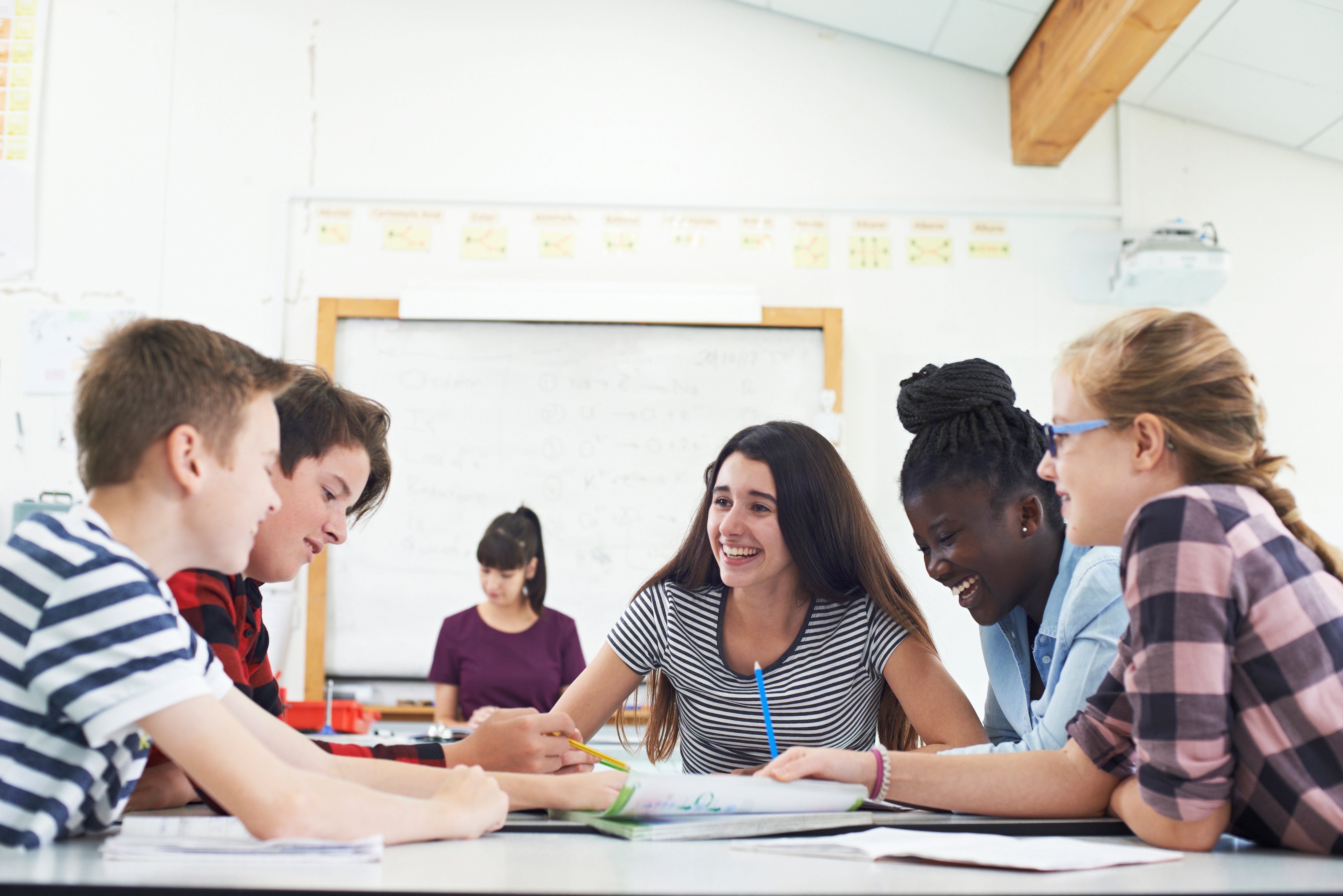Growing self-awareness throughout childhood and adolescence is a key piece of development that helps young people identify their needs and values and ultimately build foundations for healthy, meaningful lives. When we teach students explicit skills for building self-awareness, we give them tools to understand themselves sooner and more deeply than they might without guidance. Years of studies back the importance of self-awareness, indicating that it:
- Drives emotional regulation
- Helps build healthy relationships
- Improves learning-related skills
- Supports goal setting and achievement
- Improves career readiness
Self-awareness involves multiple levels of understanding, from attention to physical and emotional needs to identification of values and intrinsic motivators. As a skill that can be developed, self-awareness can be broken down into multiple parts that can be explicitly taught and practiced through lessons and activities in Pre-K-12 classrooms: sense of self, growth mindset, and interpersonal development.
- Sense of Self
Self-development hits a peak during adolescence. As scholars define it, it's a time of exploration—a period when young minds choose and commit to what matters most to them. This commitment and exploration are more than teenage musings; they provide a profound sense of security and stability.
Erickson (1963) posited identity as the answer to the age-old question, "Who am I?" Identity is an enduring and cohesive sense of self that matures with age. The more developed an individual's identity is, the more attuned they become to their unique traits and how they resonate with others.
In school, fostering students’ sense of self means helping them:
- Recognize their strengths and those of others
- Identify the roles of family, community, and environment in shaping their self-concept
- Understand the influences of peers and external factors on their perspectives and decisions
- Growth Mindset
A growth mindset is pivotal for students’ personal and academic development. Individuals with growth mindsets believe that human attributes like intelligence or personality can evolve over time. On the other hand, a fixed mindset—the belief that abilities are stagnant—can foster helplessness and deter students from facing challenges.
Personal beliefs play an instrumental role during adolescence—and beliefs in oneself and one’s abilities in particular are instrumental in supporting healthy development into adulthood. A growth mindset is closely tied to positive well-being outcomes, whereas a fixed mindset is associated with negative ones. For students, an introspective look at their fixed mindset beliefs can pave the way toward adopting a growth-oriented outlook.
As educators, we can help students develop growth mindsets by:
- Encouraging students to reflect on past errors and identify improvement areas
- Celebrating past successes and helping students recognize areas of personal growth
- Guiding students to investigate how they arrived at their ideas
- Emotional Intelligence
Emotional intelligence is about perceiving and understanding emotions accurately. This capability is a precursor to problem-solving and displaying effective behaviors. Research underscores that cultivating emotional intelligence is an uphill task without the primary step of identifying emotions.
In the classroom, we can help students develop emotional intelligence by:
- Observing and discussing bodily reactions to various emotions and scenarios
- Guiding students to name and understand their emotions
- Leading students through discussions of their emotions and considerations of scenarios through which they can consider how to respond when confronted with challenging emotions
As technological and social advancements push humanity forward at an ever-increasing pace, today’s students will need to know themselves better than ever before in order to stay adaptable and find success in the world they graduate into. By preparing them with a strong sense of self, a belief in their ability to grow, and the ability to recognize their own emotions and the ones around them, we can empower students to step into their futures with confidence in themselves and their ability to face the challenges life throws at them.





